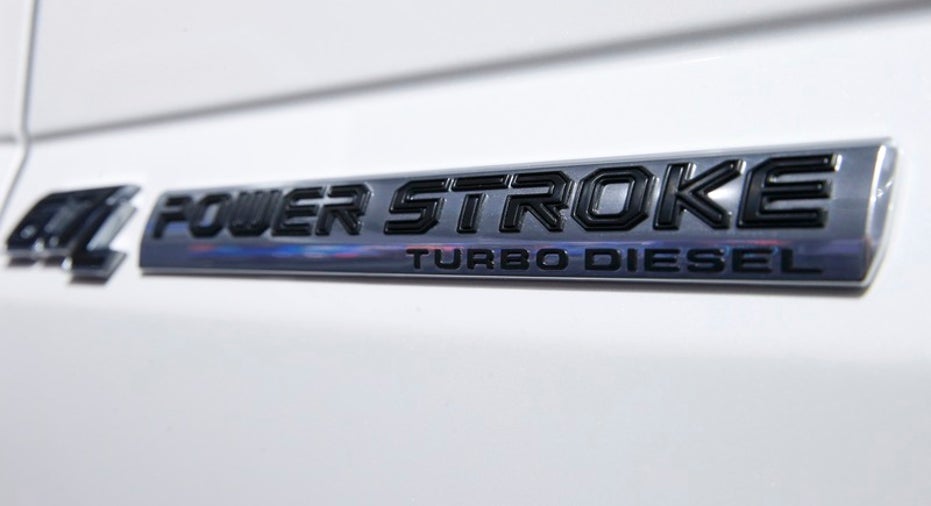Automakers tout new diesels despite Volkswagen's troubles

DETROIT – Automakers unveiled several new diesel models at the Detroit auto show this week, hoping to dispel the doubts created by Volkswagen's diesel emissions scandal and revive interest in a technology that offers benefits under fuel economy regulations.
Ford Motor Co said it would offer a diesel version of its best-selling F-150 pickup truck for the first time in 40 years, while General Motors Co said Sunday it will offer a diesel version of its compact GMC Terrain SUV.
Last year, GM announced it will start selling diesel versions of it Chevrolet Equinox and Chevrolet Cruze car, while in November Mazda Motor Co <7261.T> said it would start selling a diesel version of its 2017 CX-5 SUV in the United States later this year.
Automakers are pushing diesels in part because they offer higher mileage and better performance, particularly for heavier vehicles, than gasoline engines. The fuel economy boost helps automakers comply with federal greenhouse gas limits. The improvements in towing and acceleration are attributes automakers believe they can sell."I think we'd be very stupid to forego the benefits of diesel," Daimler AG chief executive Dieter Zetsche told reporters at the auto show.
With their CO2 emissions 15 to 20 percent below equivalent gasoline engines, he said, diesels will "continue to be very relevant" to efforts to meet climate goals.
In April, Daimler said the U.S. Justice Department had asked the carmaker to investigate its emissions certification process for vehicles including its Mercedes brand.
Diesels account for a small fraction of U.S. sales, but more than half of all passenger vehicle sales in Europe. Diesel vehicles represented less than 1 percent of all light-duty vehicle sales in the United States last year, according to hybridcars.com.
Overall diesel sales in the U.S. fell nearly 30 percent in the United States in 2016, as Volkswagen AG stopped selling diesel models in late 2015 after admitting it had rigged diesel engines to pass government emissions tests.
The company on Tuesday confirmed it is negotiating a settlement of a criminal investigation with the U.S. Justice Department and expects to pay $4.3 billion in penalties and plead guilty to criminal misconduct.
VW brand chief Herbert Diess reiterated to reporters on Sunday night in Detroit the brand has no plans to resume sales of diesels. VW is focusing on gasoline-powered vehicles and electric vehicle offerings.
Diesels accounted for about a quarter of VW brand sales before the scandal erupted. VW U.S. brand sales were down nearly 8 percent in 2016.
Regulatory problems have saddled diesel technology with "an incredibly bad reputation" and made the vehicles "an incredibly undesirable product, although its usefulness is beyond doubt," Fiat Chrysler Automobiles NV chief executive Sergio Marchionne said on the sidelines of the Detroit auto show, without referring to the VW scandal by name.
Marchionne said the automaker is spending 500 million euros to meet new European diesel emissions standards.
"What's going to kill diesel is this continuous drain on capital and this continuous skepticism about its value to society," he said.
Diesel advocates were optimistic about the technology's future after the announcements.
���These announcements send a strong message that diesel remains an important option for meeting the future vehicle needs of U.S. drivers,��� said Allen Schaeffer, the Executive Director of the Diesel Technology Forum.
Diesels offer strong performance and good fuel economy, GM said, and the automaker is not having trouble getting its engines approved by federal regulators.
"We���re really good at it," said Mark Reuss, the automaker���s executive vice president for product development. "It���s not a bet the farm thing, it���s an option."
(Reporting by David Shepardson, Joe White and Laurence Frost in Detroit; Editing by Nick Zieminski)



















